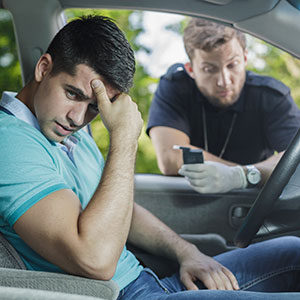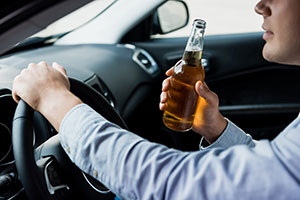Definition of DUI
DUI stands for driving while under the influence. The Texas Traffic Code only applies DUI to minors, and that is defined by people under the age of 21. DWI applies to adults who are legally allowed to drink alcohol. Why are the terms DUI and DWI used interchangeably? Because other states don’t make this clear distinction or use the term DUI to cover impaired driving when it is due to anything other than alcohol.


Differencing DUI from DWI Charges
A DWI conviction requires either a blood alcohol level of over 0.08 or driving dangerously / erratically with any alcohol or drugs in your system. You can get a DUI conviction for blood alcohol levels well below the level that would qualify for a DWI, because those under 21 aren’t allowed to drink alcohol at all. This is in part because Texas doesn’t tolerate drug and alcohol use by minors. That’s also reflected by the fact that the state of Texas won’t legalize cannabis for even medicinal use.
Texas law defined intoxication as not having normal use of your mental or physical faculties. That means that you can be convicted of DUI if your mind or body is impaired due to use of illegal drugs, dangerous legal drugs, or alcohol.
Note that juveniles can be convicted of additional offenses, especially if their drunk driving accident injures other people. However, any DUI conviction comes with a variety of consequences.
What you could be facing for a DUI Conviction
Texas penal code Section 49.04 outlines the potential consequences of a DUI or DWI conviction.
If you are convicted of DUI, typical penalties include:
- Mandatory alcohol awareness classes
- Fines of up to 500 dollars
- Community service of up to 40 hours
- Suspension of the driver’s license for up to sixty days
The community service must be related to education or prevention of alcohol abuse. For example, you may have to visit 10 schools to talk about the consequences of drunk driving and why you should never drink and drive.
Note that the penalties above are for a first DUI offense. The penalties for repeat offenders are even greater than those we just described.
Conditions That Lead to Stiffer DUI Penalties
If the open container of alcohol was in the person’s possession while operating the vehicle, then it is a class B misdemeanor with a minimum sentence of six days in jail. For comparison, DWI alone comes with a minimum of three days in jail.
The Texas Driver Responsibility Act calls for the stiffest penalties for those who have nearly twice the legal limit of alcohol in their system. If your blood alcohol level is 0.15 or higher, it is a class A misdemeanor for an adult. For a minor, expect a longer driver’s license suspension, higher fine, and more community service. That’s assuming you haven’t caused serious bodily injury or death due to your impaired driving. If you seriously injure others in a drunk driving accident, that is called intoxication assault. If you kill them, this is called intoxication manslaughter.
And there are additional penalties if you have had repeat DUIs.
If a Minor Is a Repeat DUI Offender
The penalties for repeat offenses are harsher than what a first-time offender faces. If someone is convicted of DUI a second time, the mandatory community service goes from 20 to 40 hours to 40 to 60 hours. However, the fine remains the same at 500 dollars. On the other hand, their driver’s license is suspended for twice as long, 60 days instead of 30.
For a third offense, the fine can be anywhere from 500 to 2000 dollars. They can be sent to jail for up to 180 days. And the driver’s license is suspended for 180 days.
Know that Texas Section 49.09 counts any associated offense as a prior offense when it comes to DUI. If you’re found guilty of boating while intoxicated, flying while intoxicated or operating an amusement ride while intoxicated, that is a strike against you. Thus a BWI conviction can result in being treated as a repeat offender if you’re arrested for DUI. On the flipside, repeat boating under the influence convictions can result in suspension of your driver’s license.
Possibility of additional Charges to DUI Offenses


On the other hand, there is no penalty for possession of a drug for which you have a prescription, even if its use has affected your driving. The drug possession charges could only apply then if you have the prescription drugs but don’t have a prescription for it.
You can be charged with other crimes in addition to drunk driving. For example, Section 49.03 makes possession of an alcohol beverage in the motor vehicle a crime. This doesn’t mean you’ll be arrested for a couple of empty beer cans in the back of the car. Nor will you be punished if there is a sealed six pack of beer in the trunk. The law requires that the container be open and in the passenger area of the vehicle, where it is accessible to the driver. This is why the law doesn’t apply if the beer is locked in a glove compartment. You won’t be charged under the open container law if you are driving others. For example, an Uber driver isn’t guilty if teenagers are drinking alcohol in the back seat. Nor will you be charged with DUI if someone in the back of a motor home is drinking alcohol, if the driver is sober. If you are found to have an open alcohol container in the front of the car, this is a class C misdemeanor by itself.
Evidences In Your Car


The officer can make a search based off a valid arrest, but this generally requires a traffic infraction. This can include a search of the vehicle in the aftermath of a suspected drunk driving accident. Of course, the best way to avoid this is to not drive when you’re impaired, whether it is due to drugs or alcohol. And don’t mix drugs and alcohol, whether it is over-the-counter drugs, prescription medication or illegal drugs.
Chances Of Getting a DUI Expunged from My Record
Texas won’t let you have a DUI expunged from your record. Expungement means that the slate has been wiped clean, and it will not count against you. However, you can petition the court to have a DUI and other juvenile offenses sealed. If the records are sealed, then they will not show up in general background checks by employers and colleges, though they will be visible to law enforcement if you’re arrested and employers in “sensitive” fields. And it means that a DWI a couple of years after a DWI can lead to elevated penalties.
You can expunge a DWI arrest if charges were not filed. You can ask for the arrest and charge to be expunged if the case was dismissed, you were found not guilty or your conviction was overturned. Unfortunately, Texas requires you to be proactive and file a petition to remove it from the record.
In The Event Of Someone Giving the Minor the Alcohol
The Texas Dram Shop Act makes licensed drinking establishments liable for the personal injuries caused by a drunk driver under 21 if they knowingly served alcohol to someone under 21. In layman’s terms, it means that the person injured by a 16 to 20 year old drunk driver could sue the bar that knowingly served the drunk driver alcohol. These same laws allow the victim of the crash to sue the bar if they served alcohol to someone who was a clear danger to themselves and others.
What happens if an adult gave the minor the beer or alcohol? This is in and of itself a crime. Violators of this law could go to prison for up to a year or a fine of up to 4000 dollars. This means that parents who give an 18 year old alcohol before they drive off can face criminal charges based on the adolescent’s DUI case.
(682) 204-4066 We cannot receive pictures via text so please send those via email or hand deliver to our office.
(682) 204-4066 No podemos recibir imágenes por mensaje de texto, así que envíelas por correo electrónico o entréguelas personalmente en nuestra oficina.






